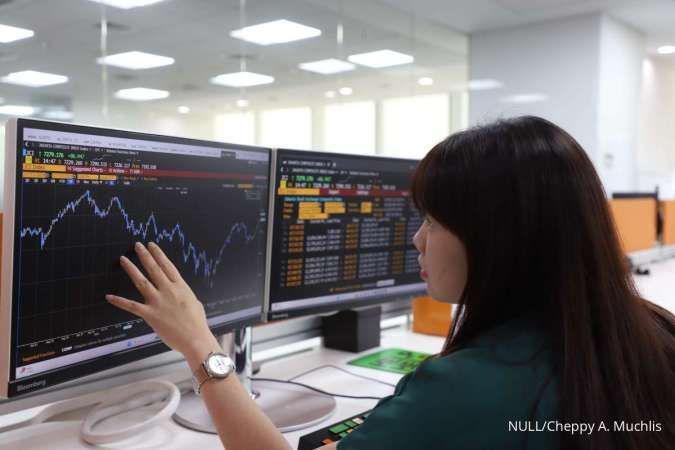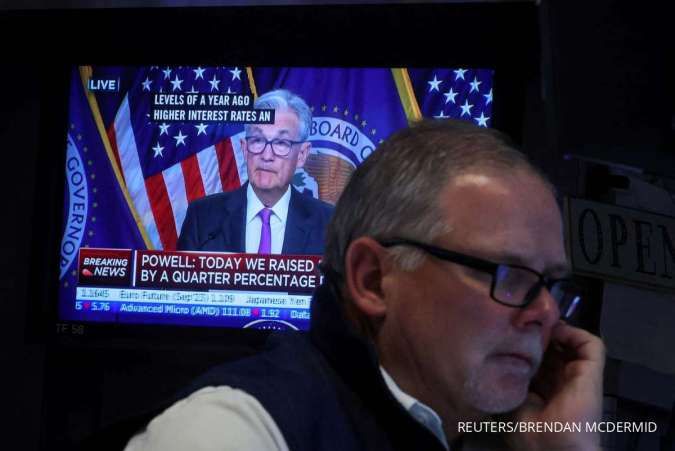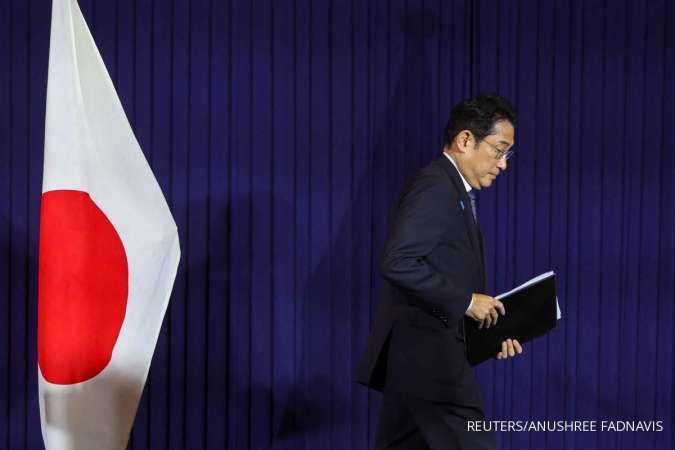KONTAN.CO.ID - TOKYO. Momentum is building for the Bank of Japan to consider ending negative interest rates as soon as this month with upcoming annual wage negotiations likely to yield bumper pay hikes for the second year in a row. Despite recent weak signs in the economy, BOJ policymakers have signalled their intention to move ahead with their plan to dial back stimulus - including Governor Kazuo Ueda, who offered an upbeat take on Japan's economic outlook last week. BOJ board member Naoki Tamura, a former commercial bank executive, has been the most vocal advocate of an early exit from negative rates, signalling in August last year that the bank could take such action by March 2024.
Fellow board member Hajime Takata also called for an overhaul of the BOJ's stimulus programme last week, saying that Japan was finally seeing prospects for durably achieving the bank's 2% inflation target. At least one of the BOJ's nine board members is likely to say that removing negative interest rates would be reasonable at this month's policy meeting, Jiji news agency reported on Wednesday, without citing sources. An end to negative interest rates would be a landmark decision by the BOJ that would roll back more than a decade of a radical monetary experiment that has aimed to put an end to prolonged deflation and economic stagnation. With inflation exceeding its target for well over a year and prospects growing of sustained wage gains, the BOJ has been dropping hints of a near-term end to negative rates.
Read Also: Fed's Powell Still Expects Rate Cuts, But Inflation Progress "Not Assured" Over 80% of economists expect the BOJ to end negative rates in April, according to a Reuters poll taken from Feb. 15-20, with some betting on action at the March 18-19 meeting. If a majority of the nine-member board vote in favour of ending negative rates, it would pave the way for Japan's first rate hike since 2007. But there is uncertainty on whether any proposal to end negative rates in March would gain enough votes. The BOJ is expected to downgrade its assessment on consumption and output this month, nodding to recent weak signs in the economy. Board member Seiji Adachi has said it might take until after the April 2024 start of the next fiscal year to determine whether conditions are conducive to ending negative rates. Board members Toyoaki Nakamura and Asahi Noguchi have also voiced caution over a premature withdrawal of monetary support. Another board member, Junko Nakagawa, will deliver a speech and hold a news conference on Thursday. The factors that will determine the exit timing include the outcome of big firms' annual wage negotiations with unions on March 13, which will serve as a benchmark for nationwide trends.
Read Also: Malaysia Central Bank Taking Action to Encourage Flows into Foreign Exchange Market A strong outcome will likely meet a crucial prerequisite the BOJ set for ending negative rates, which is for rising inflation to trigger durable wage hikes. Economists project wage hikes of about 3.9% on average at the wage talks, exceeding a 3.58% deal struck in 2023 that was the highest in three decades.
If the BOJ were to end negative rates, it will likely pay 0.1% interest on financial institutions' reserves parked with the central bank, said sources familiar with its thinking. The 0.1% interest will help guide the overnight call rate, which is the benchmark for short-term borrowing costs, in a range of zero to plus 0.1%, they said. After deploying a massive asset-buying programme in 2013 to fire up inflation to its 2% target, the BOJ introduced negative interest rates and yield curve control (YCC) in 2016. The BOJ relaxed its tight control on long-term interest rates last year by watering down YCC, and is likely to remove the 0% target set for the 10-year bond yield set under YCC when ending negative rates, the sources said.






